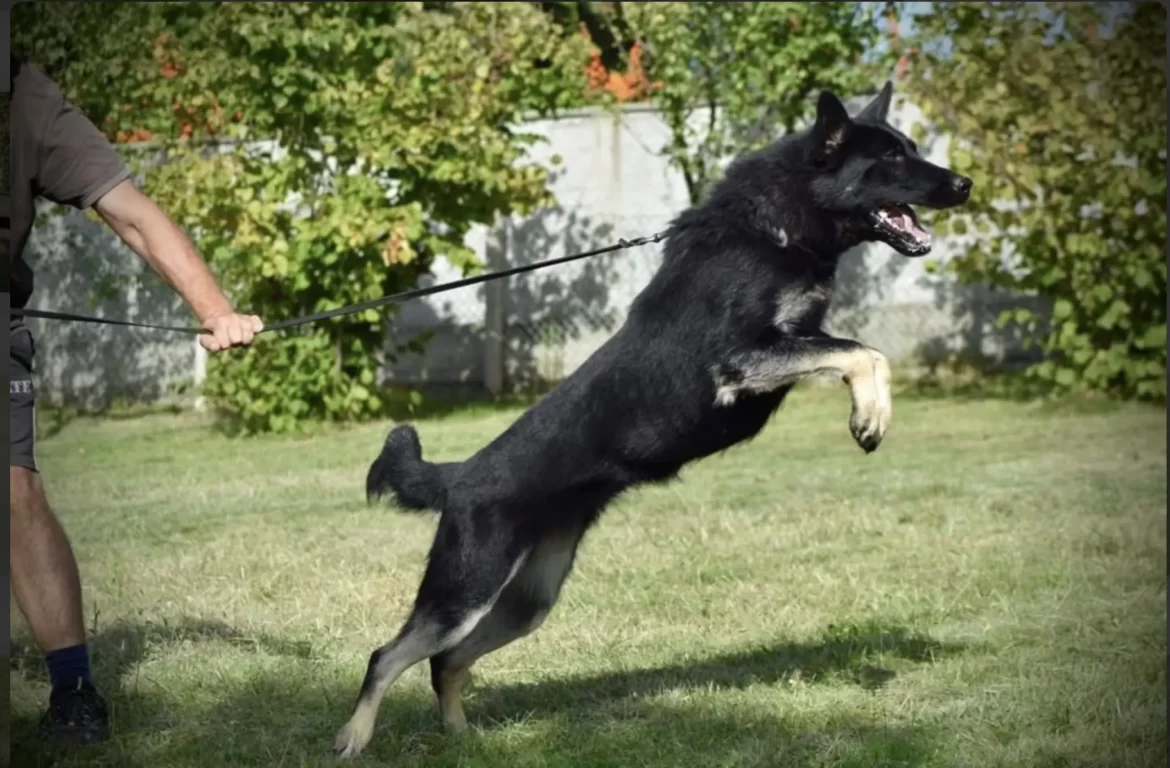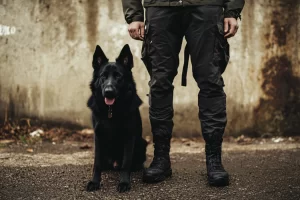Why Strong Nerves Are a Must-Have Attribute in German Shepherds
German Shepherds perform in a variety of demanding roles, from police and military work to home protection and search and rescue missions. Among the many attributes that define a capable German Shepherd, strong nerves stand out as one of the most critical. This article explores why strong nerves are essential for German Shepherds and how this attribute influences their behavior, performance, and suitability for various tasks.
Defining Strong Nerves in German Shepherds
Strong nerves in German Shepherds refer to the dog’s capacity to remain calm, composed, and focused in stressful or challenging situations. A dog with strong nerves exhibits steady behavior when faced with unexpected stimuli, whether it be loud noises, sudden movements, or unfamiliar environments. This steadiness is crucial for a dog that is expected to perform reliably under pressure, making strong nerves a non-negotiable trait for German Shepherds in many roles.
Importance of Strong Nerves in Working Roles
Police and Military Operations
German Shepherds are often selected for police and military roles due to their capacity to withstand the demands of high-pressure situations. These dogs must operate in environments that are unpredictable and often chaotic, such as during suspect apprehension, explosives detection, or patrol duties. A German Shepherd with strong nerves will not be easily startled or intimidated by loud sounds, gunfire, or aggressive behavior from suspects.
Ruffner (2013) highlights that dogs with stable nerves are less likely to make errors in judgment during critical operations. These dogs can focus on their tasks without succumbing to fear or anxiety, making them invaluable assets in the field.
Protection Work
For German Shepherds to excel as a protection dog, strong nerves are indispensable. Protection dogs need to distinguish between genuine threats and harmless situations. A dog with unstable nerves might react excessively or inappropriately, leading to potential harm to both the family and innocent bystanders.
Wilsson (2018) notes that a protection dog with strong nerves is more reliable in assessing situations accurately, only reacting when there is a true threat. This ability to stay calm and composed ensures that the dog remains a safe and effective guardian, capable of protecting its family without unnecessary aggression.
Search and Rescue Missions
Search and rescue operations often place dogs in environments that are chaotic and unpredictable, such as disaster zones or wilderness areas. In these situations, strong nerves are critical for maintaining focus and determination. A German Shepherd with strong nerves can work effectively amidst loud noises, crowds, and stressful conditions, continuing to perform its search duties without becoming distracted or overwhelmed.
According to Zimen (2016), dogs with strong nerves are more likely to succeed in search and rescue missions because they can handle the psychological stress of these challenging environments, making them more dependable in life-saving operations.
The Impact of Strong Nerves on Behavior and Socialization
Adaptability to Different Environments
A German Shepherd with strong nerves is better equipped to adapt to different environments, whether it’s a busy urban area, a quiet rural setting, or a crowded public space. Dogs that are easily frightened or stressed by changes in their surroundings can develop behavioral issues such as aggression, fearfulness, or excessive barking. In contrast, a dog with strong nerves remains calm and well-behaved, regardless of where it is.
Bartlett (2018) discusses how strong nerves contribute to a dog’s ability to acclimate to new situations without exhibiting stress-related behaviors. This adaptability is crucial for German Shepherds that accompany their owners in a variety of settings, ensuring that the dog remains composed and manageable at all times.
Confidence in Social Interactions
German Shepherds with strong nerves tend to be more confident in their social interactions, whether with other dogs, strangers, or children. This confidence is important for maintaining a well-balanced temperament, preventing issues such as fear-based aggression or timidity.
According to Ashton (2012), a dog with strong nerves is more likely to approach social situations with curiosity and calmness, rather than fear or aggression. This makes them safer and more reliable companions, especially in environments where they will encounter a wide range of people and animals.
Training and Strong Nerves
Effectiveness in Obedience Training
Strong nerves are also closely linked to a German Shepherd’s effectiveness in obedience training. Dogs with stable nerves are more focused and less likely to become distracted or overwhelmed during training sessions. This allows them to learn commands and routines more effectively, making them easier to train for both basic and advanced tasks.
Thompson (2019) emphasizes that dogs with strong nerves are more resilient during training, able to handle corrections and new challenges without becoming stressed or disheartened. This resilience leads to more consistent training outcomes and a dog that is more reliable in following commands.
Performance in Competitive and Working Roles
Whether competing in dog sports like IGP or performing in working roles, strong nerves are essential for a German Shepherd’s success. In competitive environments, dogs are exposed to unfamiliar settings, large crowds, and rigorous challenges that can test their composure. A dog with strong nerves will perform consistently, regardless of the distractions or pressures present.
Scott (2017) highlights that strong nerves are a key determinant of a dog’s performance in competitive and working roles. Dogs that remain calm and focused are more likely to excel in these settings, showcasing their abilities without being hindered by stress or anxiety.
The Role of Breeding and Genetics in Developing Strong Nerves
Selecting for Temperament
Breeding plays a significant role in developing strong nerves in German Shepherds. Reputable breeders select dogs for temperament as well as physical traits, ensuring that their puppies inherit the stability and composure needed for working and family roles.
Houpt (2014) explains that selecting breeding pairs with strong nerves increases the likelihood that their offspring will also possess this trait. This genetic foundation is crucial for producing German Shepherds that are not only physically capable but also mentally resilient.
Early Socialization and Environment
While genetics provide the foundation, early socialization and environmental factors also play a crucial role in developing strong nerves. Puppies that are exposed to a variety of stimuli in a controlled and positive manner are more likely to develop into confident, well-adjusted adults.
Fischer (2014) notes that early socialization helps reinforce the natural stability of a dog’s nerves, ensuring that they are prepared to handle the challenges they will face later in life. This combination of genetics and early experience is key to producing German Shepherds with the strong nerves needed for demanding roles.
Conclusion
Strong nerves are a must-have attribute for any German Shepherd, whether the dog is being used for protection, search and rescue, police work, or simply as a family companion. This trait ensures that the dog remains calm, composed, and reliable in a wide range of situations, from high-pressure working environments to everyday social interactions. By focusing on strong nerves, owners and breeders can help ensure that their German Shepherds are not only capable of performing their roles effectively but also well-adjusted and safe members of their families and communities.
Bibliography
- Ashton, Mark. The Bond Between Dog and Owner: How Stability Enhances the Relationship. Canine Studies Press, 2012.
- Bartlett, Emily. Understanding Canine Behavior: A Guide for Trainers and Owners. PawPrints Publishing, 2018.
- Fischer, Helmut. Raising a Stable Dog: Socialization and Training for Mental Resilience. SchutzK9 Publishing, 2014.
- Houpt, Katherine A. Animal Behavior and Dog Training Techniques. Cornell University Press, 2014.
- Ruffner, Sarah. Behavioral Genetics in Working Dogs. Animal Behavior Science, 2013.
- Scott, John P. The Genetic Basis of Canine Temperament. University of Chicago Press, 2017.
- Thompson, Daniel. Training the Protection Dog: Strategies and Techniques. Blue Ribbon Press, 2019.
- Wilsson, Erik. Socialization and Behavior in Working Dogs. K9 Studies Publishing, 2018.




